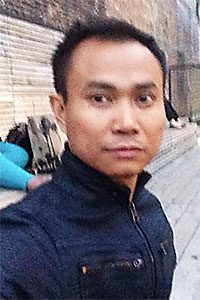As well as being a sign of potentially worse things to come, Prime Minister Prayut Chan-o-cha's posing of four leading questions last Friday was an act that perfectly demonstrated his unchecked egoism.
In a series of poorly articulated messages, he seemed to suggest Thais might not be aware of what they would get out of democratic elections.
Unintentionally or intentionally, he implied that he and his administration have made gains in the problematic areas he cautioned Thai voters to be beware of when it comes to voting in the polls next year.
It is true that he's still a popular figure among many Thais who admire his decisiveness, his macho and confrontational style, his will to get things done, his tendency to boast about his dedication to the job, and his down-to-earth manner which often comes across during interactions with rural people.
He can often be seen taking selfies, leading groups of government officials in exercise sessions or doing a chicken dance with locals.
But by questioning the value of elections, the prime minister put the judgement of Thai voters on trial.
His first question on whether the next elected administration would be able to ensure good governance implies his military rule has outperformed others on good governance and raised the bar.
It's uncertain whether Gen Prayut's memory doesn't serve him well or if he has too many high-level priorities to handle.
But he seems to have forgotten that his administration is another form of nepotism that runs against the principles of good governance.
In addition to the long list of soldiers occupying seats in various government bodies, from the National Legislative Assembly (NLA), to the cabinet and independent organisations, the National Council for Peace and Order empire has not been spared from allegations of bad governance that have put its own reputation on trial.
The shady construction of Rajabhakti Park in Hua Hin, the cabinet's approval of the navy's 36-billion-baht submarine purchase plan along with conflict of interest allegations involving his younger brother Gen Preecha are just a handful of scandals which are still fresh in our minds.
Should good governance not involve public participation? I believe the premier would find it hard to boast about that given such a process under his administration is poor, if not non-existent.
Asking people in his second question what they would do if they do not get a government that can govern well, Gen Prayut seems to suggest that any ditching his military government would undo the gains he talks of. Well, every government, no matter how great, has to be ditched when its term expires.
Any prolonged stay without re-election is merely a road to authoritarianism.
He should have realised that if we get a bad government, we would still have more checks-and-balances than we have now.
In casting doubt, in his third question, about whether elections will contribute to the country's future, reform and national strategies, the prime minister should not forget that these are also the key areas that his administration is supposed to deliver on.
It has been more than three years since he came to power and we have only seen a broad version of those works.
His last question asks what we would do if badly behaved politicians were in the running for office.
Well, we still don't know what we would do if the men in uniform who have behaved improperly seek to extend their grip on power.
When authorities lock people up for distributing leaflets containing comments on the charter, we could do nothing but feel sorry for them.
If these questions have been fashioned out of his own ego, there is an obvious reason why his administration postponed its announcement of its three-year performance from this month to September. He could have achieved more if he listened more to his people and valued their judgement.
If those questions were made to test the water about the military's intention to delay elections and prolong its power, as speculated by many politicians from both opposing camps, Gen Prayut should have known the idea will not be well-received by the public.
We can only hope his remarks were just a product of a loosely-planned communications stunt by his PR team, not part of the government's 20-year national strategy -- otherwise it's a bad sign indeed.
